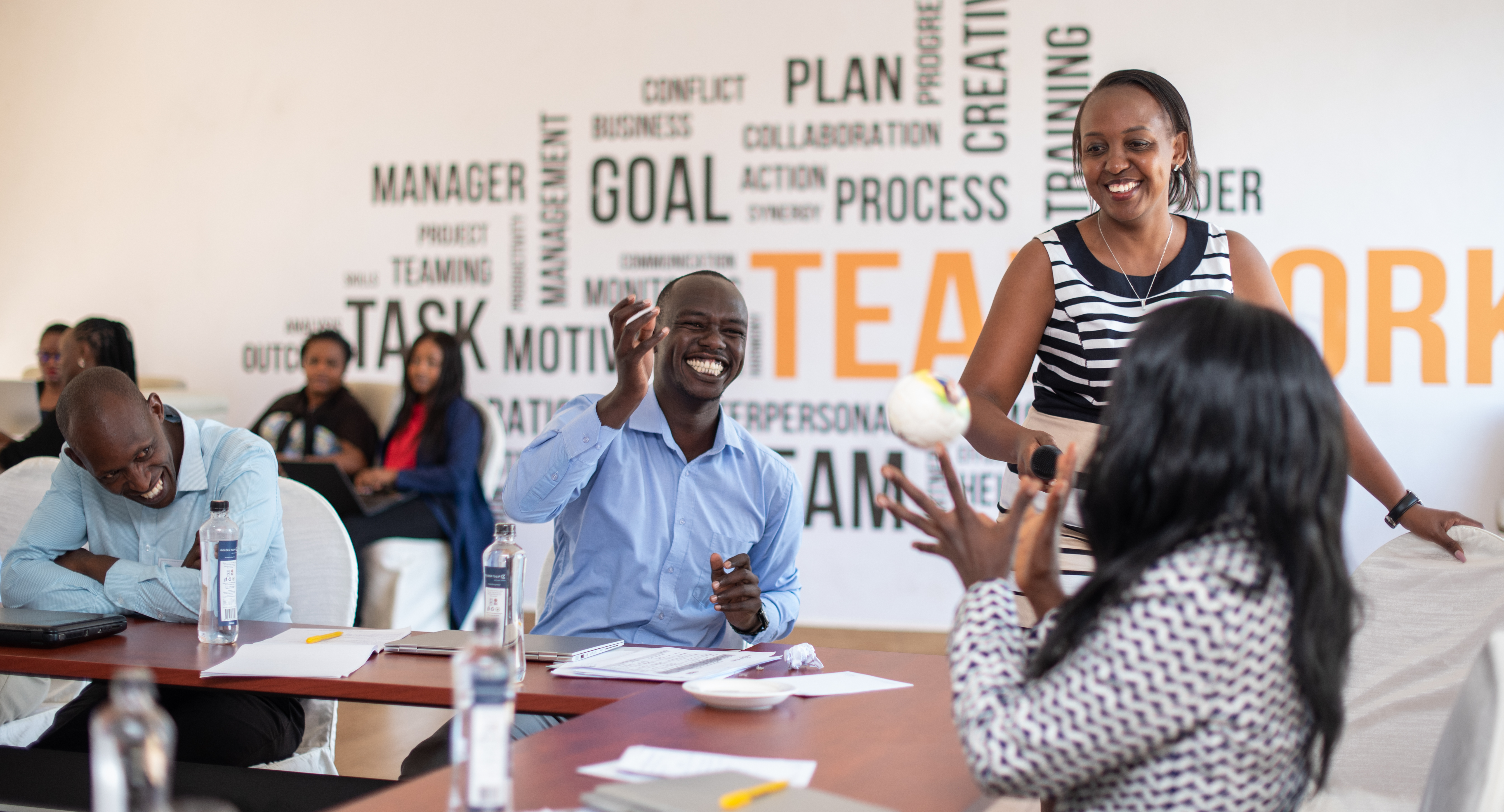
KeNIA in partnership with Viktoria Ventures held the first Training of Trainers (ToT) program in Naivasha. In the workshop that lasted a week, participants were equipped with the necessary skills to run successful Research to Commercialization (R2C) programs in their institutions.
R2C programs in universities and research institutions have the potential to transform research findings into practical solutions that can address societal needs and generate income for institutions and researchers. Running successful R2C programs requires specific skills and strategies. The trainers ensured that all participants garnered the required skills by making the program action-oriented which included use of training sessions, fireside chats, and group activities.
Using the above-mentioned techniques, participants explored 7 key topics through the course of the program.
To begin with, the participants were given a content guideline for week 1,2 and 3 training sessions. This was to equip the trainers with a summary of the session that is in the R2C program. These covered issues including legal affairs, strategies, commercialization tactics, establishing strategic alliances, among others. The objectives of the curriculum were described and explained by the instructors in depth.
A session on how to run a successful Technology Transfer Office (TTO) was also key to the program. This topic was designed to help institutions obtain the technical know-how of running a TTO successfully because most institutions had just set up a TTO and need additional clarification on how to do so. The session's main topics were the TTO's mission and goals, its training, and its effectiveness inside the institutions. Finally, this session also covered the main tasks and duties for a TTO.
A cultural transformation is required to support and applaud consumerism. Therefore, a session on mindset shift required for successful R2C programs was essential. The emphasis of this topic was on concrete methods for changing from a fixed to a development mentality. There needs to be a mindset change among institution staff members so that they prioritize commercializing their ideas rather than just thinking of their research as valuable for publications and market penetration by alleviating societal problems and creating income.
Also discussed were ways to monitor and evaluate R2C programs. It is crucial to monitor and assess the R2C program's performance to make sure it is accomplishing its objectives. Metrics like the number of profitable commercialization endeavors, funds raised, patents submitted, and jobs created can be included in this. A collaborative strategy is necessary for successful R2C projects, one that entails collaborating with researchers, building an expert network, promoting partnerships, offering training and assistance, and tracking progress. Through this, R2C programs can be beneficial to not only the researcher but also the society at large.
Another key topic was the value of Gender Equality and Social Inclusion (GESI) lens. GESI focuses on the deliberate inclusion, involvement, and empowerment of marginalized communities. This frequently occurs inside teams when team voices and ideas are not heard or their requirements are not taken into consideration. Overall, GESI-focused interventions are fair and long-lasting.
Participants were given the know-how of marketing their R2C programs by taking advantage of social media. Participants received training on how to develop social media strategies that support their marketing objectives. This comprises choosing the appropriate social media platforms for their idea and creating interesting content.
The researchers engaged in practical session where they pitched their ideas to the trainees. This interesting session was aimed at showing the trainees that pitching is very essential to any program to show stakeholders that your program is important, and it needs attention.
With all that was said and done, networking opportunities to find appropriate partners who could help the researchers’ R2C projects, provide commercial, technical, and financial support to meet the infrastructure needs, such as equipment and incubation rooms required to run R2C programs in their institutions, were some of the support areas identified.